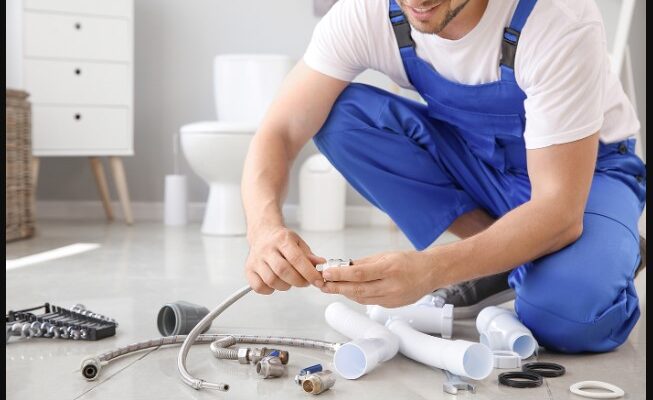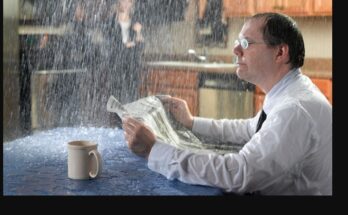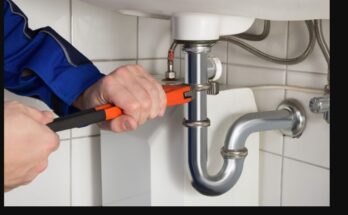Maintaining a well-functioning plumbing system is essential for every home. It’s not just about avoiding inconvenient breakdowns; it’s also about ensuring the health and safety of your household. But how do you keep your plumbing in top shape?
This comprehensive guide provides practical tips and advice on maintaining your plumbing system, preventing common issues, and extending the life of your pipes and fixtures.
Contents
- 1 Introduction to Plumbing in Top Shape
- 2 Understanding Your Plumbing System
- 3 Regular Inspections
- 4 Preventive Maintenance
- 5 Dealing with Common Plumbing Issues
- 6 Proper Use of Plumbing Fixtures
- 7 Seasonal Plumbing Tips
- 8 Signs of Plumbing Problems
- 9 When to Call a Professional
- 10 Upgrading Your Plumbing System
- 11 DIY Plumbing Tips
- 12 Benefits of Smart Plumbing Technology
- 13 Conclusion
- 14 FAQs
Introduction to Plumbing in Top Shape
Your plumbing system is like your home’s circulatory system, delivering fresh water and removing waste efficiently. Just like maintaining your car or caring for your health, your plumbing system requires regular care and attention.
This article will provide essential tips to keep your plumbing in excellent condition, saving you from costly repairs and ensuring smooth operation.
Understanding Your Plumbing System
Components of the System
Your plumbing system comprises several key components, including pipes, fixtures, and appliances like water heaters. Understanding these components’ basic layout and function can help you identify and address issues more effectively.
Water Supply and Drainage
Plumbing systems are divided into two main parts: the water supply system, which brings clean water into your home, and the drainage system, which removes wastewater. Ensuring both parts function properly is crucial for overall system health.
Regular Inspections
Visual Checks
Conduct regular visual inspections of your plumbing fixtures, pipes, and appliances. Look for signs of leaks, corrosion, or wear and tear. Early detection of issues can prevent significant problems later on.
Professional Inspections
Schedule professional plumbing inspections annually. A licensed plumber can identify potential issues that may not be visible during a casual inspection and provide expert advice on maintenance.
Preventive Maintenance
Pipe Insulation
Insulating your pipes, especially those in unheated areas, can prevent freezing during cold weather, which can cause pipes to burst. Pipe insulation is a simple and cost-effective preventive measure.
Water Pressure Regulation
High water pressure can strain your plumbing system and lead to leaks. Install a water pressure regulator to maintain safe pressure levels and extend the life of your pipes and fixtures.
Dealing with Common Plumbing Issues
Leaky Faucets
A leaky faucet is not only annoying but also wasteful. Replace worn-out washers or cartridges to stop leaks and conserve water.
Clogged Drains
Use drain covers to catch hair and debris. If you encounter a clog, use a plunger or a plumber’s snake to clear it. Avoid using chemical drain cleaners, as they can damage your pipes.
Running Toilets
A running toilet can waste a significant amount of water. Check the flapper valve and other components inside the tank and replace any faulty parts to stop the toilet from running continuously.
Proper Use of Plumbing Fixtures
Avoiding Blockages
Never flush non-biodegradable items like wipes, sanitary products, or paper towels down the toilet. These items can cause severe blockages in your plumbing system.
Conserving Water
Install water-saving fixtures like low-flow showerheads and faucets. They help conserve water and reduce utility bills.
Seasonal Plumbing Tips
Winter Preparations
Before winter sets in, disconnect outdoor hoses and drain outdoor faucets to prevent freezing. Insulate any exposed pipes and ensure your home’s heating system functions correctly.
Spring Maintenance
In the spring, check for any damage caused by winter weather. Look for leaks, inspect outdoor faucets, and clean gutters and downspouts to ensure proper drainage.
Signs of Plumbing Problems
Unusual Noises
Listen for unusual noises, such as banging or hissing, from your pipes. These sounds can indicate issues such as water hammer or air in the pipes, which may require professional attention.
Discolored Water
If you notice discolored water from your taps, it could be a sign of rust in your pipes or issues with your water heater. Address this promptly to ensure safe drinking water.
Slow Drains
Slow-draining sinks or tubs often indicate a blockage in your pipes. Addressing these issues early can prevent complete clogs and potential pipe damage.
When to Call a Professional
Complex Repairs
Always call a professional plumber for complex repairs or installations. Attempting DIY fixes on complicated issues can often lead to more damage and higher repair costs.
Emergency Situations
Contact a plumber immediately in case of emergencies such as burst pipes or severe leaks. Quick, professional intervention can minimize damage and repair costs.
Upgrading Your Plumbing System
Modern Fixtures
Consider upgrading to modern plumbing fixtures that offer better efficiency and water conservation. Newer models can also enhance the aesthetics and functionality of your home.
Smart Plumbing Technology
Investing in intelligent plumbing technology can provide advanced features like leak detection, water usage monitoring, and automated controls, helping you maintain your system more effectively.
DIY Plumbing Tips
Basic Tools and Skills
Equip yourself with essential plumbing tools like a plunger, pipe wrench, and plumber’s tape. Learning simple skills such as shutting off the water supply or unclogging a drain can save you time and money.
Safety Precautions
Always take safety precautions when performing DIY plumbing tasks. Wear protective gear, ensure the area is well-ventilated, and turn off the water supply before starting any repair.
Benefits of Smart Plumbing Technology
Enhanced Monitoring
Innovative plumbing systems allow you to monitor water usage and detect leaks remotely. This can help you address issues promptly and avoid costly repairs.
Water and Energy Efficiency
Smart fixtures and appliances are designed to optimize water and energy use, reduce waste, and lower utility bills.
Conclusion
Maintaining your plumbing system is essential for the smooth operation of your home. By conducting regular inspections, performing preventive maintenance, and addressing issues promptly, you can keep your plumbing in top shape and avoid costly repairs. Embracing innovative plumbing technology can further enhance your system’s efficiency and longevity. Remember, a little attention and care can go a long way in ensuring the health and functionality of your plumbing system.
FAQs
How often should I inspect my plumbing system?
Conducting a visual inspection of your plumbing system every few months and scheduling professional inspections annually is recommended.
What should I do if I find a leak?
If you find a leak, turn off the water supply to the affected area and fix it yourself if it’s a minor issue, or call a professional plumber for more significant problems.
How can I prevent my pipes from freezing?
To prevent pipes from freezing, insulate exposed pipes, disconnect and drain outdoor hoses, and keep your home adequately heated during cold weather.
Are chemical drain cleaners safe for my plumbing?
Chemical drain cleaners can damage your pipes and should be used sparingly. Using a plunger or plumber’s snake to clear clogs is better.
What are the benefits of intelligent plumbing technology?
Innovative plumbing technology offers benefits such as leak detection, remote monitoring, and optimized water and energy usage, which can help you maintain your system more effectively and reduce utility bills.
If you gained new insights from this article, explore our blog, Gimkit, for more enlightening content.



